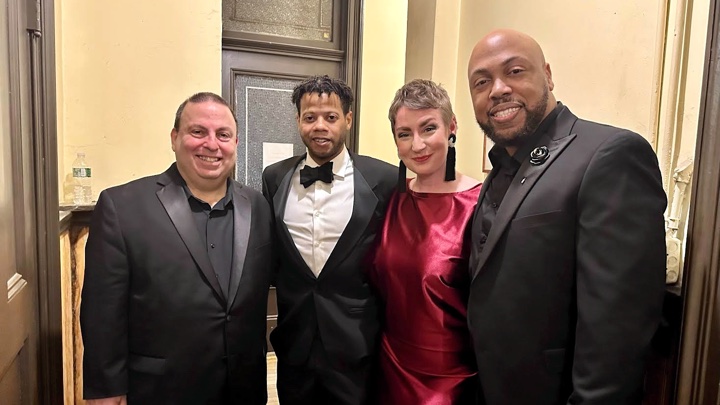
David Leibowitz, Kyle Oliver, Gretchen Windt and Roderick George.
Based on the play by Johann Wolfgang van Goethe, with a libretto by Eugène Adenis, it was written when Boulanger was only 19.
In this episode, Faust, persuaded by Méphistophélès to sell his soul for a moment of true happiness, asks to see the mythical Helen of Troy, the very same whose beauty started the Trojan War.
Dedicated to her sister, Nadia — who would go on to be an influential composer and teacher — Faust et Hélène earned Boulanger the Premier Grand Prix de Rome, making her the first woman to receive this award.
But Boulanger’s was “the instinct of genius marked by death,” said the pianist Marcelle de Manziarly, according to program notes for New York Repertory Orchestra’s concert on Saturday.
Her father, Ernest, also a composer, passed away when she was three. A bout of bronchial pneumonia as a toddler had left Boulanger immunocompromised for life.
She died at age 24 — just five years after Faust et Hélène — from either tuberculosis or undiagnosed Crohn’s disease.
It makes sense that such a youthful piece be performed by the New York Repertory Orchestra, which champions young musicians and composers. The all-volunteer orchestra, made up of professionals and amateurs, gives free concerts at the Church of St. Mary the Virgin.
David Leibowitz, their serious and attentive conductor, seems genuinely beloved. He paired Faust et Hélène with Bohuslav Martinu’s challenging Symphony No. 2, marked by bopping basses, shimmery violins, and a final note that hangs in the air. It’s hard to believe that Martinu is technically Boulanger’s contemporary, born three years earlier, in 1890.
This was followed by the world premiere of Whitney E. George’s Ruin, a NYRO commission. It seemed thoughtful to pair Boulanger with a young, contemporary female composer. Characterized by celesta and false harmonics in the cellos, the piece was both cinematic and synesthetic, inspired by the stars on the church’s ceiling.
Faust et Hélène, on the other hand, is very much of the Romantic idiom, which the orchestra seemed to excell at, playing with both passion and sensitivity.
My biggest issue, however, was the balance between mezzo-soprano Gretchen Windt, as Hélène, and tenor Roderick George, as Faust.
George, with a bright and piercing tone, went for full-on Pavarotti, holding nothing back. His voice overshadowed Windt’s lyric mezzo, which never fully reached a dynamic peak. George’s French diction was also sometimes unclear, making me wish I had the libretto.
On the other hand, baritone Kyle Oliver, as the sarcastic Méphistophélès, was unfaultable.
Partly to blame are Boulanger’s dynamic markings. Hélène, less than thrilled to be back from the grave, hovers around piano. While Faust, a bit oblivious, sings mostly forte.
In fact, Hèlène doesn’t sing ‘til nearly halfway through the opera (if I may call it that.) Until then, the audience just sees the back of Windt’s head in the church pews.
It’s at cross purposes, as Hélène is, arguably, the opera’s most important character. Boulanger could have easily, like Hector Berlioz’s earlier Goethe adaption, named it after just Faust. Or why not Faust, Hélène, et Méphistophélès?
Despite the balance issues, there were many beautiful moments, including when Hélène and Faust’s vocal lines cross on “Je t’aime.” When Hélène is sent back to the dead, falling figures in the flutes accompany her cry, or sigh, “Adieu.”
Why was the young Boulanger so drawn to Hélène, focusing especially on her interiority? It may have to do with Goethe’s idea of the archetypal “eternal feminine,” introduced towards the end of the Faust play.
It’s poignant considering Boulanger’s untimely death. And the way in which NYRO’s performance, momentarily, seems to resurrect her.



